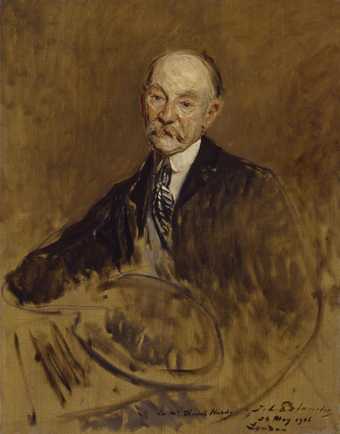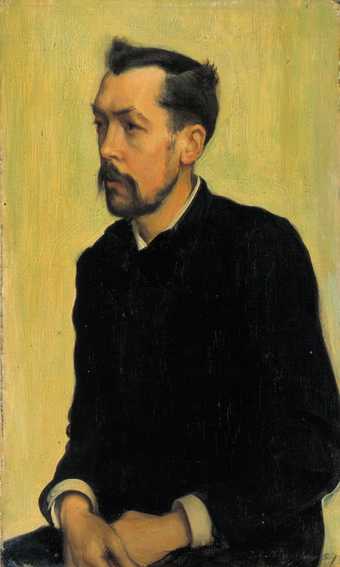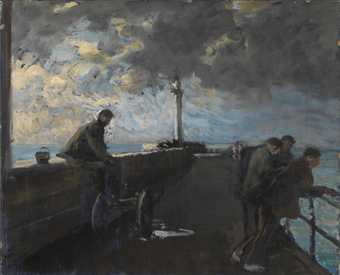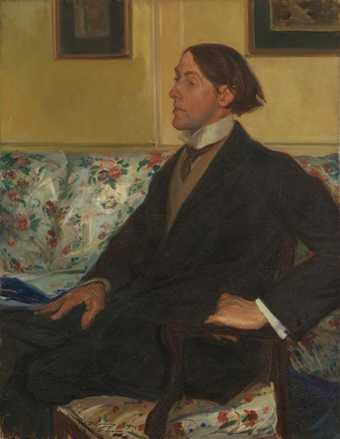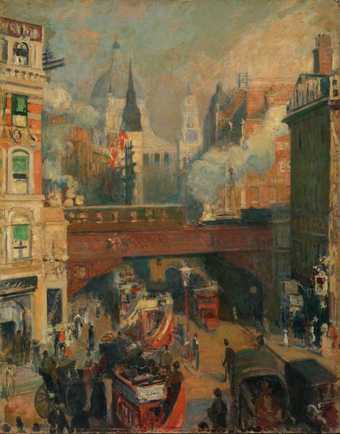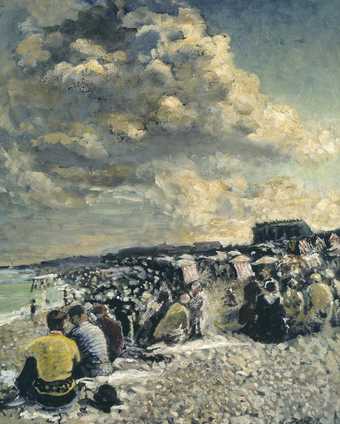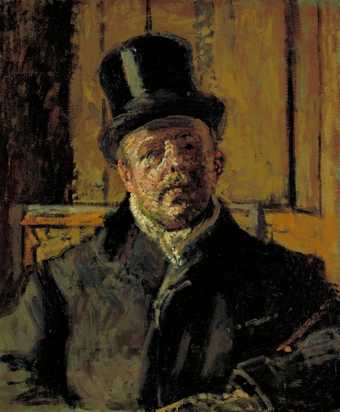Artist biography
French painter and writer. His father, a fashionable nerve specialist, owned a clinic where many of Blanche's sitters had been patients. As a painter he had both talent and charm, and he enjoyed a great vogue in his day. His work lacks originality and was much influenced by such contemporaries as James Tissot and John Singer Sargent. The loose brushwork and subdued colouring of his portraits are also reminiscent of Edouard Manet and English 18th-century artists, especially Thomas Gainsborough. Except for a few lessons with Henri Gervex and Ferdinand Humbert (1842–1934), he had no formal training, and many of his paintings have deteriorated because of poor technique. He worked best on a small scale, and some of his less ambitious oils and small sketches (e.g. Head of a Young Girl, 1885; priv. col., see Post-Impressionism, exh. cat., London, RA, 1979–80, p. 46) are among his most appealing works. The few pastels he executed during the 1880s and 1890s are also of high quality, as exemplified by the dramatic portrait of the poet Georges de Porto-Riche (?1890–95; London, F.A. Soc.)
As much at home in England as in France, Blanche visited London every year from 1884 with great success. His chief patrons there were Mrs Saxton Noble and Violet Manners, Duchess of Rutland. Among the many portraits he painted of English sitters are those of Mrs Holland (1885; untraced) and the Saville Clark Sisters (c. 1890; Leeds, C.A.G.), both of which have a panache worthy of Sargent. His ability to capture a sitter's personality is particularly apparent in his portrait of Aubrey Beardsley (1895; London, N.P.G.), for whose novel, Under the Hill, Blanche wrote the preface. He also painted the artist Charles Conder (1904; London, Tate), James Joyce (1934; Dublin, N.G. and 1935; London, N.P.G.), Violet Trefusis (1926; London, N.P.G.) and Virginia Woolf (1927; Providence, RI, Sch. Des., Mus. A.).
Blanche regularly spent his summers at his family house in Dieppe, playing host to many of his artist friends, including Walter Sickert and Sargent, and popularizing Dieppe as an artistic colony. There he painted his masterpiece, the large group portrait of the Norwegian landscape painter Frits Thaulow and his Family (1907; Paris, Mus. d'Orsay). He made a generous bequest of his own paintings, and those he had collected, to the nearby Musée des Beaux-Arts in Rouen.
Blanche's closest connections, however, were with Paris. He exhibited at the Salon from 1882 to 1889 and at the Société Nationale des Beaux-Arts from 1890. Although he quarrelled irrevocably with his patron Comte Robert de Montesquiou in 1889, he remained part of the social and cultural life of Paris. Many of his friends were painters—among them Edgar Degas, Paul Helleu and Giovanni Boldini. He painted portraits of the composer Claude Debussy (untraced), the poet Anna de Noailles (1912; Rouen, Mus. B.-A.) and the dancer Vaclav Nijinsky (1910; London, priv. col.), depicted life-size in Diaghilev's production Les Orientales. His portrait of Marcel Proust (1892; Paris, priv. col.), whom he had met in the salon of a fashionable hostess in 1891, depicts the author as a young dandy on the threshold of society. The two became good friends; Proust helped Blanche with his writing and corrected the proofs of his Cahiers d'un artiste, a series of letters about the activities of their mutual friends (under pseudonyms) during World War I. Proust also wrote the preface to Propos de peintre, a group of essays in which Blanche discussed many painters from Jacques-Louis David to his own time. Blanche was unhappy about Proust's remark in his introduction that the artist when young had been known as one whose ‘sole ambition was to be a much sought-after man of the world'; but this criticism is born out by his own memoirs, which recount his life in society and often compromise accuracy for entertainment.
Bibliography
Exposition Jacques Emile Blanche, 1861–1942 (exh. cat. by D. Halévy, Paris, Mus. Orangerie, 1943)
A. Ferrier: ‘Jacques-Emile Blanche, peintre et mémorialiste', L'Oeil, viii (1962), pp. 58–65, 108
JANE ABDY
Wikipedia entry
Jacques-Émile Blanche (French: [blɑ̃ʃ]; 1 January 1861 – 30 September 1942) was a French artist, largely self-taught, who became a successful portrait painter, working in London and Paris.
This biography is from Wikipedia under an Attribution-ShareAlike Creative Commons License. Spotted a problem? Let us know.
Read full Wikipedia entryArtworks
-
Jacques-Émile Blanche Thomas Hardy
1906 -
Jacques-Émile Blanche Arthur Symons
1895 -
Jacques-Émile Blanche Portraits of Charles Shannon and Charles Ricketts
1904 -
Jacques-Émile Blanche Francis Poictevin
1887 -
Jacques-Émile Blanche On the Pier at Dieppe
c.1938 -
Jacques-Émile Blanche Charles Conder
1904 -
Jacques-Émile Blanche Ludgate Circus: Entrance to the City (November, Midday)
c.1910 -
Jacques-Émile Blanche August Morning, Dieppe Beach
c.1934
Artist as subject
-
Walter Richard Sickert Jacques-Emile Blanche
c.1910


